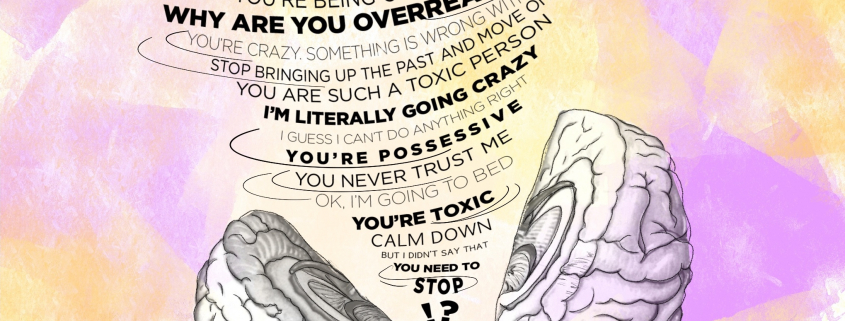Stop calling people toxic — they may be fighting an unseen battle

Content warning: This article mentions suicidal ideation. If you or anyone you know is struggling, please, contact your physician, go to your local ER, or call the suicide prevention hotline in your country. For the United States, the numbers are as follows:
The National Suicide Prevention Lifeline at 800-273-TALK (8255), or message the Crisis Text Line at 741741. Both programs provide free, confidential support 24/7.
Today’s mental health movement often stresses the importance of supporting one’s friends and destigmatizing topics. However, society has not yet reached the level of understanding regarding other mental illnesses that go beyond being sad, stressed or anxious. Navigating more complex mental health conditions such as psychosis, suicidal ideation or panic disorders can be overwhelming for those involved, but the least helpful thing for a person experiencing emotional distress is to be abandoned as a hopeless cause — or worse — be labeled as dangerous, destructive or toxic.
This begs the question: How should one deal with someone in a crisis?
Nowadays, people call each other toxic for almost every reason in the book, from a roommate who leaves their dishes in the sink for too long to an emotionally abusive partner. That’s the problem with the popularity of the word: Colloquially, it is extremely unspecific, and people use it frequently to describe individuals in their life whom they don’t like. It is a flimsy term.
But what is society’s fascination with blanket-labeling someone as intrinsically “bad”? Believing that someone is bad, or “toxic,” suggests that this is just the way they naturally are and that they cannot or do not wish to change. Subconsciously, people may believe in fixed personality traits, which is untrue at best and harmful at worst.
The problem with believing in fixed personality traits is that it snatches an opportunity to grow or change in any meaningful way. Research actually shows that even the most difficult personalities can change with work or treatment. Thus, believing in a fixed mindset easily allows us to avoid challenges and give up easily. So by presuming that a “toxic” person was born that way and will remain that way until they die, we are abandoning or “canceling” them because it is the easy thing to do.
But what if we thought about why the person is acting this way?
Mental illness — no matter how mild or severe — is never a choice. Depression, anxiety and personality disorders are the result of biological, psychological or environmental factors. In other words, we cannot divide resulting behaviors into “good” or “bad.” Mental health can be debilitating, which can cause one to act out emotionally. This doesn’t make anyone evil or even mean that they had any malicious intent. Someone making an unskilled choice probably hasn’t learned the proper tools to navigate certain difficult situations. This is where skill-based therapy can be very helpful.
Most everyday people don’t actually know how to deal with an emotional crisis. After all, there are trained professionals who have attended school for years to learn how to act in a crisis situation. But sometimes, people just need a friend to talk to — it may be much less daunting than calling a suicide hotline. However, most people don’t know how to respond to depressive or suicidal thoughts — chances are, they don’t even want to hear it.
This is what therapists and other mental health professionals are for. Friends and family may become too distressed or disturbed seeing a loved one in crisis, but it is their duty to support that person to their fullest capability by making sure they are not alone or in danger and helping that person reach out for professional help if necessary.
Friends, siblings or significant others can be difficult to get along with. After all, college students experiencing significant psychological problems is a growing concern on college campuses. Considering the past year and a half of living with the coronavirus, even young adults with no predisposition to mental illness have had a tough time. The pandemic has added a great amount of stress to students’ lives. We are concerned about our physical health and the health of our loved ones, all while grappling with the constant uncertainty that comes with living through a global pandemic.
With that being said, compassion and patience toward friends and peers needs to be shown now more than ever before. Whether they are moody, irritable, overbearingly anxious or even straight-up unpleasant, there is a chance that they are struggling with their own mental health.
Before giving up on them by labeling them as a toxic person, we must try to understand what they are going through. We have the ability to empathize with others and need to learn to see both perspectives and tolerate different personalities, even in extreme situations.
It may be satisfying to call someone toxic and cut them off, but that easily villainizes that person. In reality, someone struggling with mental illness is likely not a villain to anyone but themselves. But by using the term “toxic,” we blame the other person for these circumstances; for all we know, they are holding on the best they can.
Instead of seeing the world in terms of good and bad, we could open a whole different viewpoint to see everyone trying their best in a difficult, emotional and exhilarating game of life.

